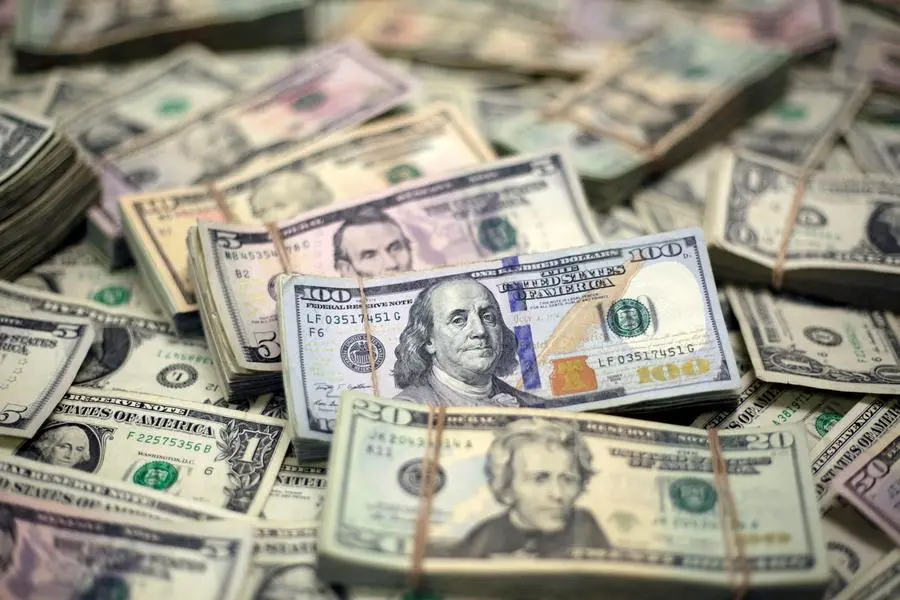PHOTO
The dollar fell against the yen on Friday, and was softer against other peer currencies after disappointing U.S. housing numbers, as investors sifted through economic data to gauge the Federal Reserve's appetite for interest-rate cuts.
U.S. single-family homebuilding fell in July as higher mortgage rates and house prices kept prospective buyers on the sidelines, suggesting the market remained depressed at the start of the third quarter.
The dollar was 0.96% softer against the Japanese yen at 147.87, having touched a two-week high of 149.40 in the prior session. Still, the yen looked on course for its biggest weekly decline since June after U.S. economic data eased fears of a recession and supported bets of gradual rate cuts.
"Today's disappointing housing data put pressure back on the U.S. dollar, as the DXY continues to hover around the 103 level," said Uto Shinohara, managing director and senior investment strategist at Mesirow.
"The dollar movements continue to be data dependent, with likely more emphasis placed on jobs data and the health of the economy and less on inflation with headline CPI crossing below 3% on the latest reading. The market waits for further Fed messaging as Jackson Hole begins next week."
Risk-sensitive currencies such as sterling were firm as the improved economic outlook spurred a rally in equities.
Data on Thursday showed the number of Americans filing new applications for unemployment benefits dropped to a one month-low last week while U.S. retail sales increased by the most in 1-1/2 years in July, dashing expectations that the Fed could cut interest rates by 50 basis points (bps) next month.
Traders are convinced the Fed will cut rates on Sept. 18, but had debated the size of the reduction after surprisingly soft U.S. payrolls data pushed the odds of a larger 50 basis-point cut to 71% in early August.
Odds for such a move have fallen back to 25.5%, according to the CME Group's FedWatch Tool.
The dollar index, which measures the greenback against six other major currencies, slipped 0.35% to 102.67.
YEN STILL WEAK, POUND A BRIGHT SPOT
With losses of about 1%, the yen was on track for its biggest weekly drop in almost two months.
The currency surged to as strong as 141.675 yen per dollar on Aug. 5 as the Bank of Japan's surprise rate hike, combined with the flare-up in U.S. recession worries, sparked an aggressive unwinding of yen-financed carry trades.
Some calm was restored after influential BOJ deputy governor Shinichi Uchida said the central bank would not hike rates when markets are volatile, and there are signs traders have been rebuilding short positions.
"That long and steep decline in dollar yen, and the weakening dollar euro is based on what the Fed is planning to do," said Joseph Trevisani, senior analyst, FXStreet.com. "The big trend moves have already taken place. Now we're getting a bit of back and forth from the statistics."
Official data shows plenty of flows are happening, and Japanese investors ploughed the most money into long-term overseas bonds in 12 weeks in the week to Aug. 10, while foreigners were net buyers of short-term Japanese debt after eight straight weeks of selling.
Overseas investors also snapped up about $3.5 billion in Japanese shares, reversing three consecutive weeks of net selling.
Sterling rose 0.38% to $1.2903 - its highest since July 25 - after data showed British retail sales edged up in July, boosted in part by extra spending during the men's Euros soccer championship after an unusually cool and wet June had kept shoppers away.
The pound was on track for a 1.2% weekly rise, its best performance in more than a month.
The euro added 0.24% to $1.0999. The common currency touched its highest level since Jan. 3 earlier this week, helped by drop in the dollar after soft data.
(Reporting by Laura Matthews in New York; additional reporting by Kevin Buckland in Tokyo and Sruthi Shankar in Bengaluru Editing by Andrew Heavens, Kirsten Donovan)





















